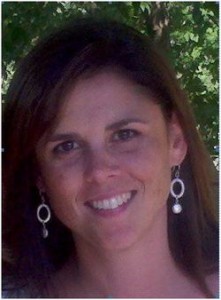“’Engagement is about human contact, the contact with the teacher, the contact with their peers,’ said Pierre Laurent, 50, who works at a high-tech start-up and formerly worked at Intel and Microsoft. He has three children in Waldorf schools, which so impressed the family that his wife, Monica, joined one as a teacher in 2006.”

The above quote came from an article about the Waldorf schools. The Waldorf model is a learning method that rejects the notion of exposing kids to technology as a primary model for education.
I read this article shortly after Ben’s blog challenging us to consider alternatives to relying too much on technology in preparing for the future. It provides a powerful reminder from the savviest technology leaders of our time, of how we might have been oversold on the uses of technology.
“The chief technology officer of eBay sends his children to a nine-classroom school here. So do employees of Silicon Valley giants like Google, Apple, Yahoo and Hewlett-Packard.
But the school’s chief teaching tools are anything but high-tech: pens and paper, knitting needles and, occasionally, mud. Not a computer to be found. No screens at all. They are not allowed in the classroom, and the school even frowns on their use at home.”
Wow! Really! I was pleasantly shocked and frankly relieved! As grandparents, my wife and I have decided to establish a screen free environment when our grandson visits our home…. And I must say this article confirmed my confidence in that decision.
“Schools nationwide have rushed to supply their classrooms with computers, and many policy makers say it is foolish to do otherwise. But the contrarian point of view can be found at the epicenter of the tech economy, where some parents and educators have a message: computers and schools don’t mix.
This is the Waldorf School of the Peninsula, one of around 160 Waldorf schools in the country that subscribe to a teaching philosophy focused on physical activity and learning through creative, hands-on tasks. Those who endorse this approach say computers inhibit creative thinking, movement, human interaction and attention spans.
The Waldorf method is nearly a century old, but its foothold here among the digerati puts into sharp relief an intensifying debate about the role of computers in education.
‘I fundamentally reject the notion you need technology aids in grammar school,’ said Alan Eagle, 50, whose daughter, Andie, is one of the 196 children at the Waldorf elementary school; his son William, 13, is at the nearby middle school. ‘The idea that an app on an iPad can better teach my kids to read or do arithmetic, that’s ridiculous.’
Mr. Eagle knows a bit about technology. He holds a computer science degree from Dartmouth and works in executive communications at Google, where he has written speeches for the chairman, Eric E. Schmidt. He uses an iPad and a smartphone. But he says his daughter, a fifth grader, ‘doesn’t know how to use Google,’ and his son is just learning. (Starting in eighth grade, the school endorses the limited use of gadgets.)”
Revelations, such as this, from the epicenter of leadership in technology reassures us that the need for human interaction will always be required. In addition, it provides reasons to believe that these may be early signs of a more pervasive revolt against a reliance on technology.
As a practicing Clinical Psychologist, I remember being afraid of “the new cure for depression and anxiety” in the late 80’s with the advent of Prozac and similar medications. I recall asking a trusted mentor, naively, if the future of Psychotherapy was dead. He laughed and said “People will always look for shortcuts, but always return for human interaction.”
Could his words be appropriate for you and your industry? I think so.
Are the technology founded Real Estate competitors going to disappear? Of course not. Prozac is still around, but has not replaced psychotherapy.
This article and my mentor’s words address the most fundamental anchor to hold your primary value proposition as the core for your company’s future: Human interaction without the dependence on technology will always be needed.
For those of you who want additional thoughts about kids and technology read below:
==========================================================================================
Steve Jobs: a Low-Tech Parent
“Apple’s former CEO Steve Jobs was a ‘low tech parent’ who restricted his children’s access to electronic devices.”
A recent New York Times article summarized by the Telegraph had the following to say about the view Jobs and other high tech leaders took when it came to allowing their children to use technology:
Bilton reveals that Jobs, who died in 2011, was a self-confessed “low-tech parent.” When Bilton asked Jobs, in 2010, whether his own kids loved Apple’s iPad, Jobs replied: “They haven’t used it. We limit how much technology our kids use at home.”
Bilton reveals that, since his surprising conversation with Jobs, he has had similar discussions with other high-profile figures in the tech industry.
Chris Anderson, a former editor of Wired, told Bilton that he set strict time limits and parental controls on every device at home. “My kids accuse me and my wife of being fascists,” he said. “They say that none of their friends have the same rules. That’s because we have seen the dangers of technology first hand. I’ve seen it in myself; I don’t want to see that happen to my kids.”
It seems that Jobs, Anderson and others who extol the virtues of electronic devices, who help convince us that such things are essential parts of our daily lives, had serious concerns over the long-term effects of children engaging with touchscreen technology for lengthy periods.
Researchers at the University of California Los Angeles recently published a study which concluded that removing gadgets from children for just a few days immediately improves their social skills
So before we all get too carried away with Apple’s latest gizmos, perhaps we should all take our cue from Jobs. According to Walter Isaacson, who spent a lot of time at Jobs’ house when they worked on a book together, face-to-face family interaction always came before screentime. “Every evening Steve made a point of having dinner at the big long table in their kitchen, discussing books and history and a variety of things,” Isaacson told Nick Bilton. “No one ever pulled out an iPad or computer. The kids did not seem addicted at all to devices.”
 This article was written by Dr. David Mashburn. Dave is a Clinical and Consulting Psychologist, a Partner at Tidemark, Inc. and a regular contributor to WorkPuzzle.
This article was written by Dr. David Mashburn. Dave is a Clinical and Consulting Psychologist, a Partner at Tidemark, Inc. and a regular contributor to WorkPuzzle.
 Lee Gray is the Senior Account Manager at Tidemark Inc. Lee is a guest contributor to
Lee Gray is the Senior Account Manager at Tidemark Inc. Lee is a guest contributor to














